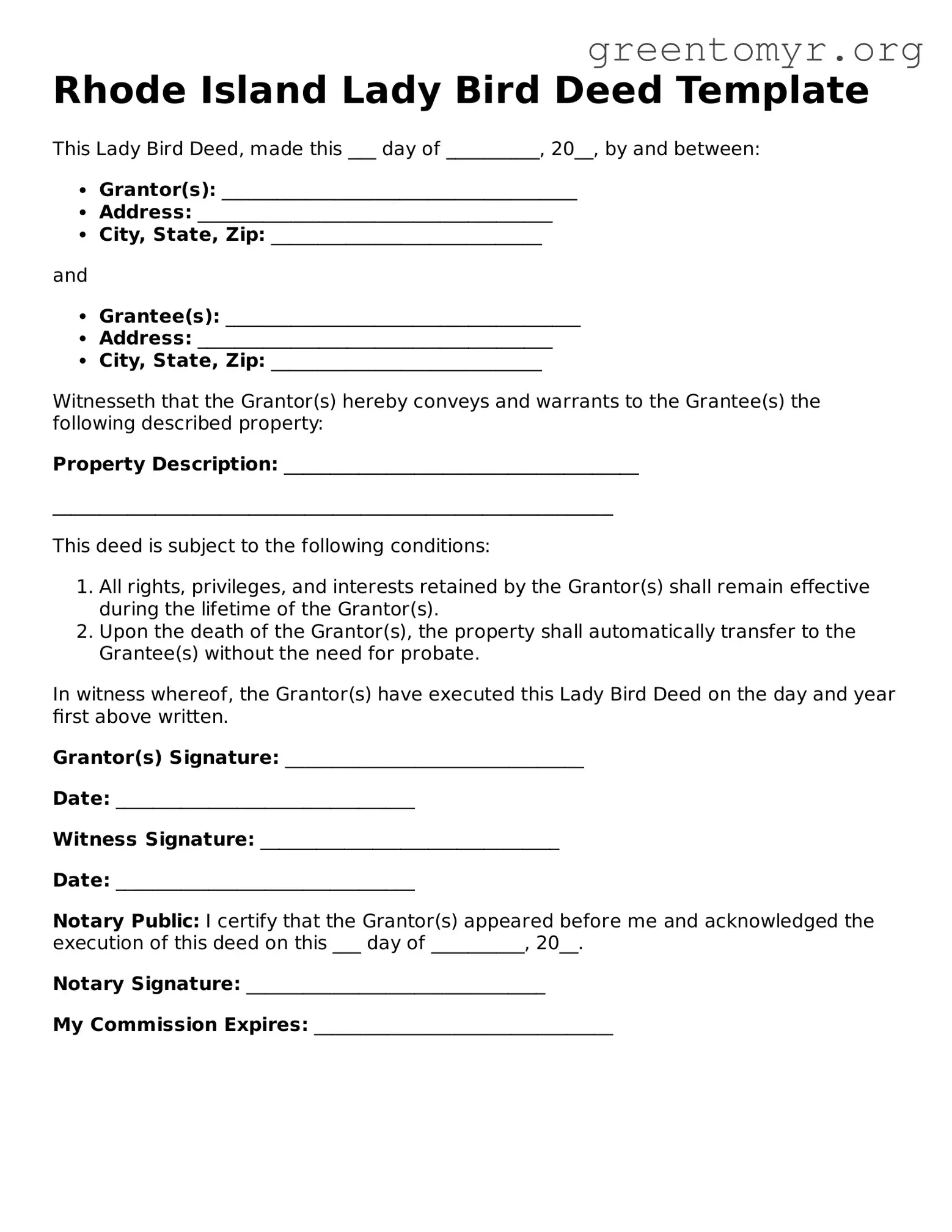Rhode Island Lady Bird Deed Template
This Lady Bird Deed, made this ___ day of __________, 20__, by and between:
- Grantor(s): ______________________________________
- Address: ______________________________________
- City, State, Zip: _____________________________
and
- Grantee(s): ______________________________________
- Address: ______________________________________
- City, State, Zip: _____________________________
Witnesseth that the Grantor(s) hereby conveys and warrants to the Grantee(s) the following described property:
Property Description: ______________________________________
____________________________________________________________
This deed is subject to the following conditions:
- All rights, privileges, and interests retained by the Grantor(s) shall remain effective during the lifetime of the Grantor(s).
- Upon the death of the Grantor(s), the property shall automatically transfer to the Grantee(s) without the need for probate.
In witness whereof, the Grantor(s) have executed this Lady Bird Deed on the day and year first above written.
Grantor(s) Signature: ________________________________
Date: ________________________________
Witness Signature: ________________________________
Date: ________________________________
Notary Public: I certify that the Grantor(s) appeared before me and acknowledged the execution of this deed on this ___ day of __________, 20__.
Notary Signature: ________________________________
My Commission Expires: ________________________________
